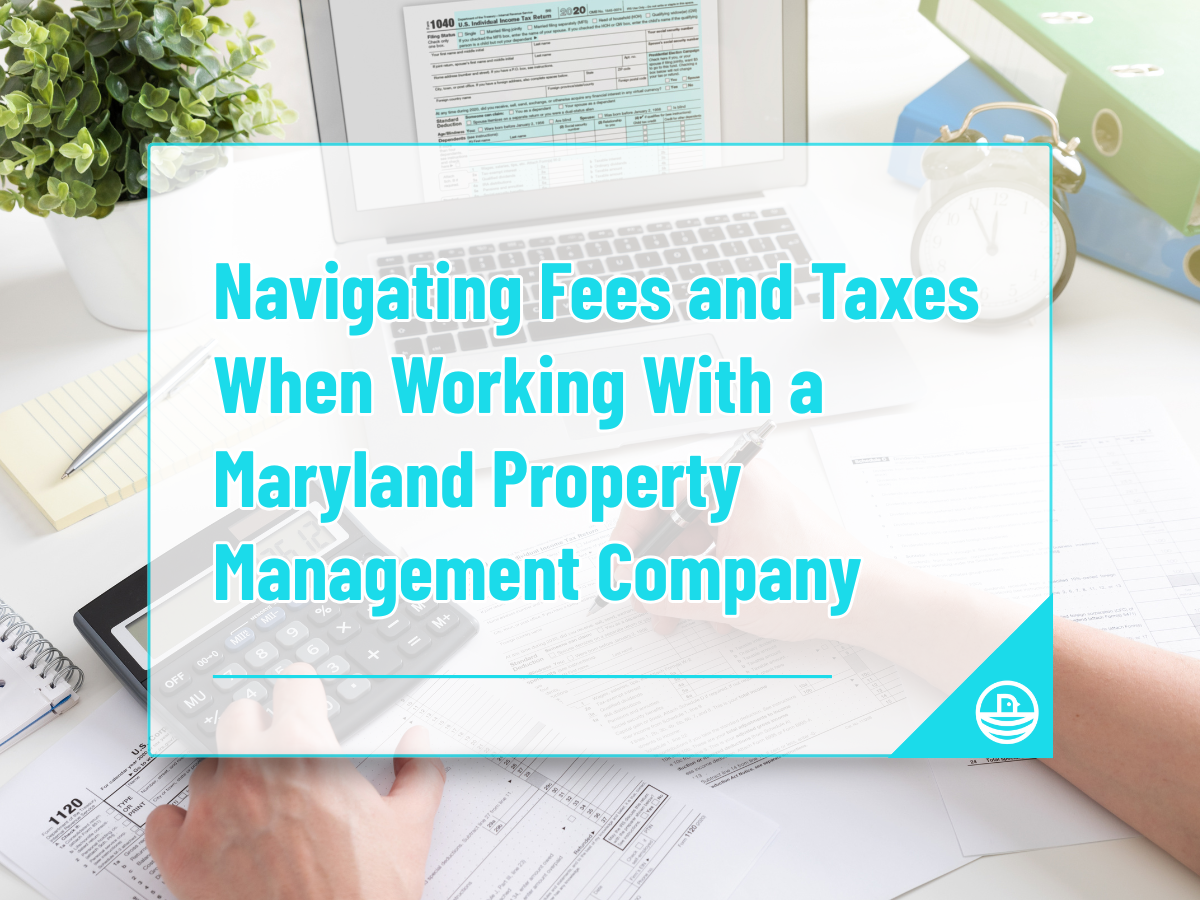For Landlords: Understanding the Notice to Quit in Maryland
Like in many urban centers, the rental landscape in Maryland is characterized by its unique laws and regulations. Landlords who wish to maintain a positive and lawful rental relationship with their tenants need to understand these legalities, a critical aspect of which is the notice to quit. This article will delve into the specifics of this notice, its implications, and the responsibilities it carries for both landlords and tenants.
Introduction
The notice to quit is a formal legal document that a landlord gives a tenant when it is time to terminate a lease. This notice serves as a precursor to eviction, informing tenants of their obligation to vacate the rented premises. In Maryland, the rules surrounding this notice can vary based on circumstances such as lease agreements, the reason for the notice, and state laws. According to the People’s Law Library of Maryland, “Landlord-tenant with a written lease for a stated term in excess of one week (or a tenancy from month to month) must receive 60 days’ notice [while] landlord-tenant agreements for a periodic term of year to year must receive 90 days’ notice.”
For landlords, understanding the nuances of serving a notice to quit is paramount. Not only does it outline essential procedures, but it also protects their rights under Maryland law. The goal here is to ensure that the termination of the lease occurs smoothly and legally.
A notice to quit in Maryland must be served according to specific legal guidelines to be considered valid. For instance, the notice period could differ based on the type of lease violation—whether it’s for non-payment of rent, lease expiration, or other breaches of the rental agreement. In cases of non-payment, landlords typically must provide a 10-day notice, while other violations may require a longer notice period. This attention to detail helps landlords avoid potential legal disputes and fosters a clearer understanding between both parties regarding their rights and responsibilities.
How the notice to quit is delivered can impact its enforceability. Landlords should consider consulting with legal professionals to ensure compliance with all applicable laws and to navigate any complexities that may arise in the eviction process. This proactive approach can ultimately save time and resources, ensuring that landlords are well-prepared to handle any challenges that may come their way.

What is a Notice to Quit in Maryland?
A notice to quit in Maryland is a legal warning that signifies a landlord’s intention to terminate a rental agreement. This document must explicitly state the reasons for termination and provide a specific timeframe for the tenant to vacate the property. It must be delivered in writing. Common reasons for issuing a notice to quit include breach of lease terms or imminent threat.
In Maryland, landlords are required to state the exact reason for issuing a notice. For example, if the tenant has not paid rent, the notice must include the amount owed and any other relevant details about the breach. This level of specificity not only fulfills legal requirements but also sets clear expectations for the tenant.
The Process of Serving a Notice to Quit in Maryland
Firstly, the landlord must prepare the notice, ensuring that it contains all required information. Once the notice is drafted, it must be served to the tenant. There are various methods to serve a notice to quit, including:
- Hand delivery to the tenant.
- Posting the notice on the property.
- Sending it via certified mail.
Each method has its own legal implications and benefits. Hand delivery is often the most straightforward method as it provides immediate proof of service. Posting the notice on the property may be necessary if the tenant is unreachable, while certified mail offers a reliable confirmation of dispatch.
After serving the notice, the landlord must wait for the stipulated notice period to expire. This period can range from a few days to several weeks, depending on the reason cited in the notice. If the tenant does not comply by vacating the property, the landlord may then proceed to file for eviction in court, marking the next phase of the process.
Resident Rights and Responsibilities
Tenants in Maryland have specific rights and responsibilities, even when faced with a notice to quit. For instance, tenants have the right to challenge the validity of the notice if they believe it was served incorrectly or lacks sufficient cause. They also have the right to receive adequate time to move out effectively.
On the other hand, tenants must uphold their responsibilities under the lease agreement. This includes paying rent on time, maintaining the property, and adhering to any rules stipulated in the lease. Failing to fulfill these responsibilities may lead to the issuance of a notice to quit, demonstrating the importance of understanding and abiding by the terms of the rental agreement.
Landlord Rights and Responsibilities
Just as tenants have rights, landlords also possess rights and responsibilities when issuing a notice to quit in Maryland. Landlords have the right to reclaim their property and ensure that it is being rented according to legal statutes. This implies that if a tenant breaches the lease, a landlord can take necessary measures to regain possession.
Landlords must also follow legal protocols when serving a notice to quit. This means providing proper notice within the legally required timeframes and using acceptable methods for service. Failing to adhere to these guidelines can jeopardize the eviction process and may lead to legal repercussions for the landlord.
Final Thoughts: Notice to Quit in Maryland
In conclusion, navigating the complexities of a notice to quit in Maryland requires a clear understanding of legal protocols for landlords. By accurately serving a notice to quit and comprehending the associated rights and responsibilities, landlords can protect their interests while also treating tenants fairly. In a city like Maryland, informed landlords are better positioned to manage their properties successfully, thus fostering an environment of mutual respect and compliance.
As a landlord, always consult with a legal professional to ensure you are following current laws and regulations regarding eviction and rental agreements. This proactive approach will minimize potential disputes and ensure your rights are safeguarded throughout the rental process.
Ready to make your passive income passive? Contact our local property management team today!













